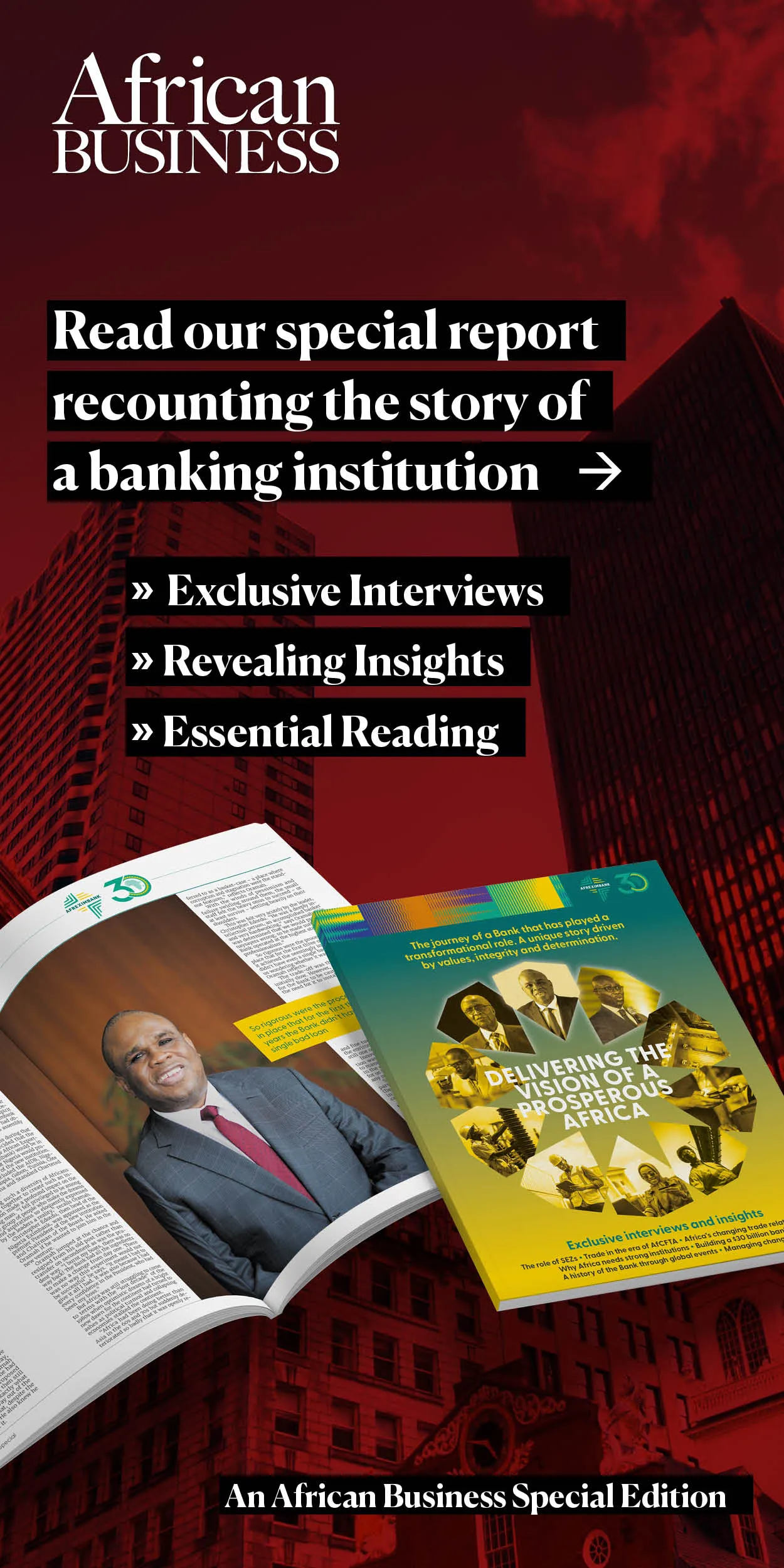This article was produced with the support of Afreximbank
Trade is a key component of the original mandate of the African Export Import Bank (Afreximbank), which was set up to promote and finance intra-African and external trade by its member states. Over the years, the bank has devoted substantial resources not merely to support trade transactions, but also to create better trade conditions for, in particular, intra-African trade, which at around 15%, lags well behind other continents. According to Haytham El Maayergi, Afreximbank’s executive vice president, Global Trade Bank, the bank plans to increase its financing of intra-African trade from $20bn in 2021 to $40bn by 2026.
The bank has been an important and vocal actor in forming the African Continental Free Trade Area (AfCFTA), and in support of its Secretariat. In 2023 it launched the AfCFTA Adjustment Fund, following a mandate by the African Union and AfCFTA Council of Ministers. The $10bn fund, based in Rwanda, aims to support countries and private entities during their transition to the AfCFTA trading regime. It offers financing, technical assistance, grants, and compensation to mitigate any negative impacts from greater trade – with some countries losing out in the short term from a fall in revenues from tariffs.
The bank has also developed the Pan African Payment and Settlement System, in partnership with the AfCFTA Secretariat. The objective of PAPSS is to simplify cross-border payments and settlements across Africa and reduce dependency on hard currencies like the US dollar and the Euro, which businesses in different African countries currently use to transact amongst themselves.
By enabling transactions in local currencies, PAPSS will also significantly reduce transaction costs and boosts efficiency. Afreximbank estimates that the full implementation of PAPSS could save the continent over $5bn annually in payment transaction costs.
The bank is also supporting digital trade through its African Trade Gateway platform, which allows goods and service providers on the continent to digitally display their wares and reach clients all over and beyond the continent, while providing facilities for due diligence and assistance on issues of governance and know-your-customer obligations. Another way in which the bank is supporting trade is through the Transit Guarantee Scheme. Transit costs in Africa are 63% higher than in developed countries, and delays cost traders an average of $450 a day, amounting to a $300m surcharge on trade. The bank’s transit guarantee scheme, however, allows goods to move through countries without requiring bonds for each transit country. The scheme covers duties and taxes at risk during transit, with Afreximbank bearing the liability. Estimated at $1bn, the scheme is already being implemented in partnership with the Common Market for Eastern and Southern Africa, aiming to boost trade capacity by sharing risks with existing operators.
Recognising the importance of mitigating risks in trade, Afreximbank has also introduced AfrexInsure, an insurance platform designed to provide comprehensive coverage for trade and investment risks across Africa. AfrexInsure addresses challenges such as payment defaults, political instability and operational disruptions. Another of the bank’s interventions is the African Quality Assurance Centres (AQACs), the first of which has been established in Ogun state, Nigeria. The initiative is part of a broader strategy to boost quality standards across Africa, ensuring compliance with international standards and regulations, offering services like physical and chemical testing, contaminant analysis, microbiological testing, and more. The centre also provides inspection and training services to enhance technical capacity in Nigeria and the region. Partnering with Bureau Veritas, Afreximbank aims to make the centre commercially viable and sustainable. The initiative is part of an agreement with ARISE IIP to create laboratories for testing and certification services in its business parks. Afreximbank has committed $100m to develop more AQACs across Nigeria and other African countries.

 Sign in with Google
Sign in with Google 
